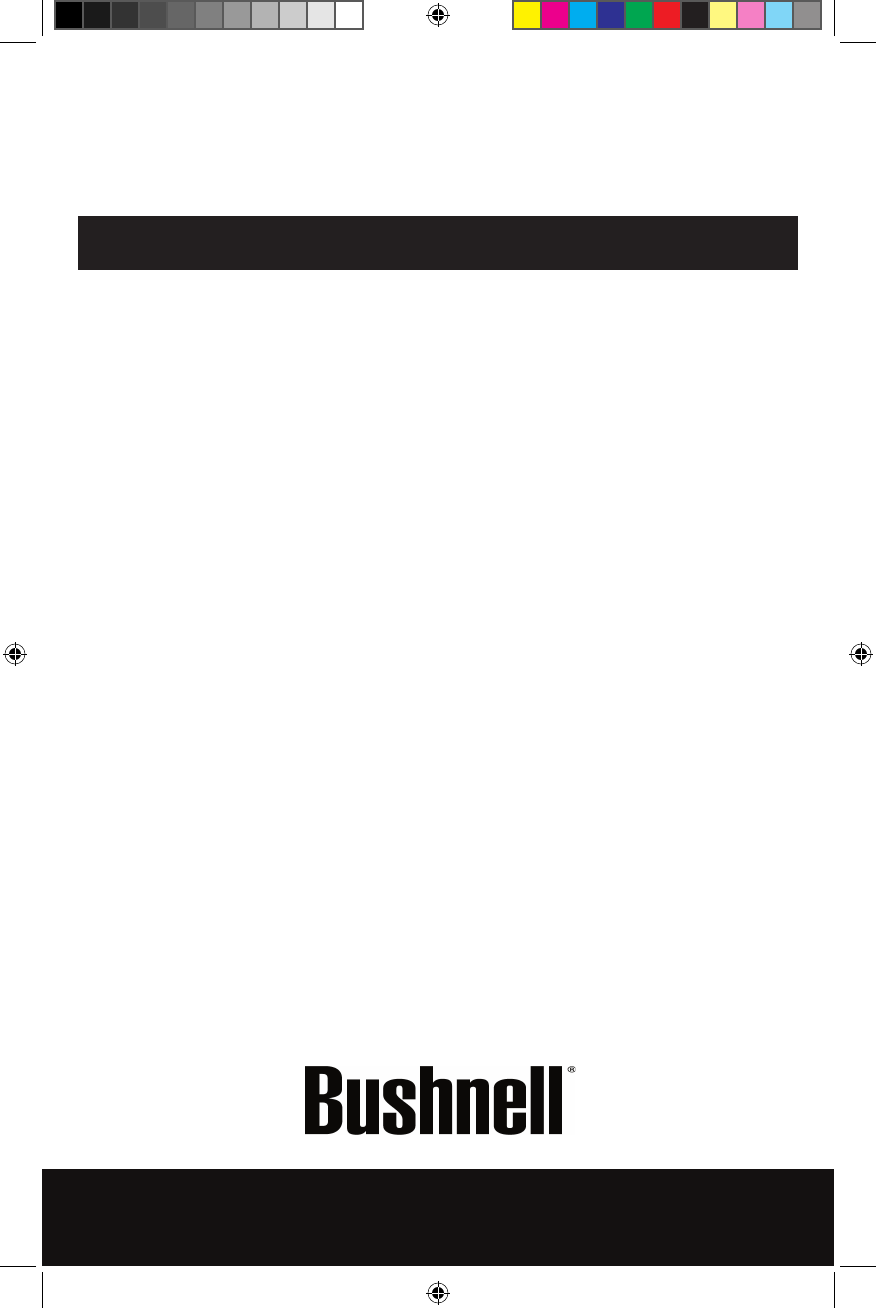
©2006 Bushnell Outdoor Products
www.bushnell.com
HELPFUL HINTS
1. Your telescope is a very sensitive instrument. For best results and
fewer vibrations set
your telescope up on a level location on the
ground rather than your concrete
driveway or your wooden deck. This
will provide a more stable foundation for viewing, especially if you’ve
drawn a crowd with your new telescope.
2.
If possible, view from a location that has relatively few lights. This will
allow you to see much fainter objects. You’d be surprised how much
more you’ll see from your local lake or park when compared to a
backyard in the city.
3. Using your telescope out a window is NEVER recommended.
4. View objects that are high in the sky if possible. Waiting until the
object rises well
above the horizon will provide a brighter and crisper
image.
Objects on the horizon are viewed through several layers of
earth’s atmosphere. Ever wonder why the moon appears orange as it
sets on the horizon?
It’s because you are looking through a consider-
able more amount of atmosphere than you would directly
overhead.
(Note: If objects high in the sky are distorted or wavy, you are probably
viewing on a very humid night.) During nights of unstable atmosphere,
viewing
through a telescope can be frustrating if not impossible.
Astronomers refer to crisp, clear nights as nights of “good seeing.
”
Customer Service (800) 423-3537
QVC 78-6114 Telescope 1LIM.indd 8 9/6/2006 3:02:27 PM











